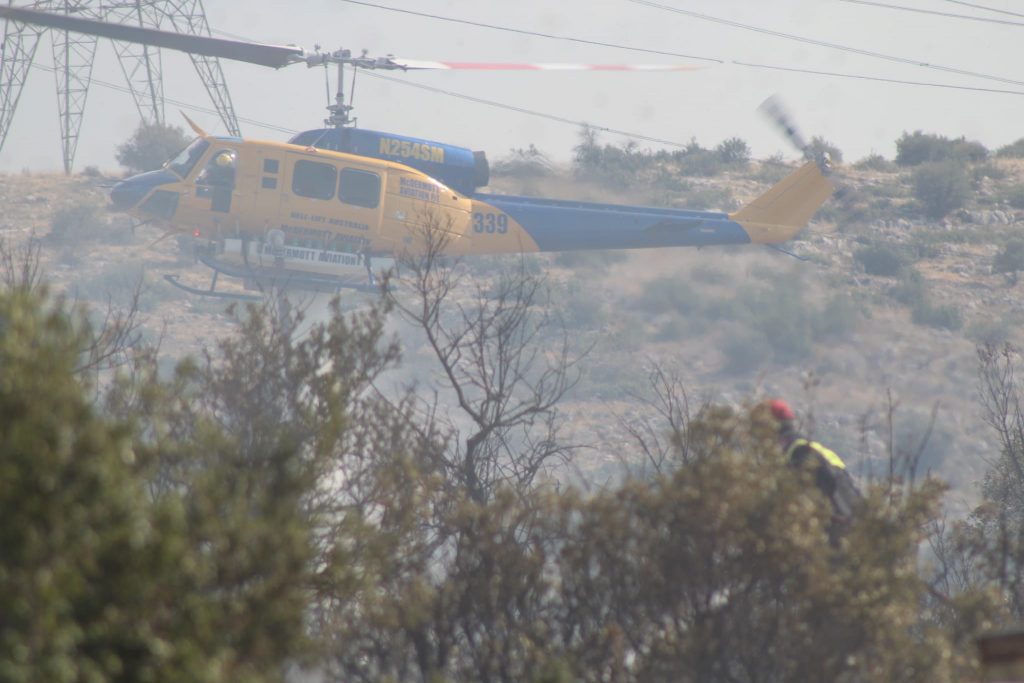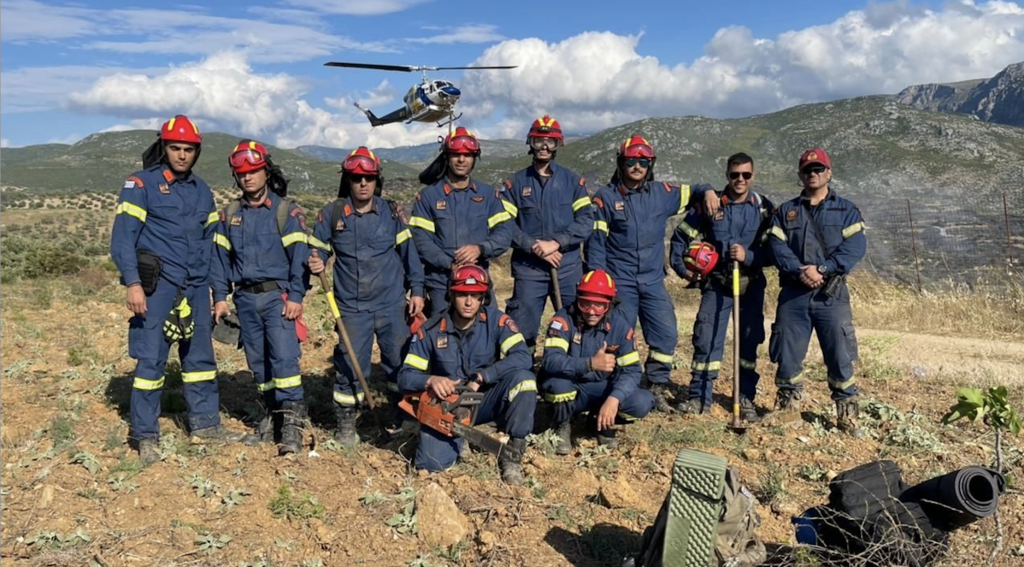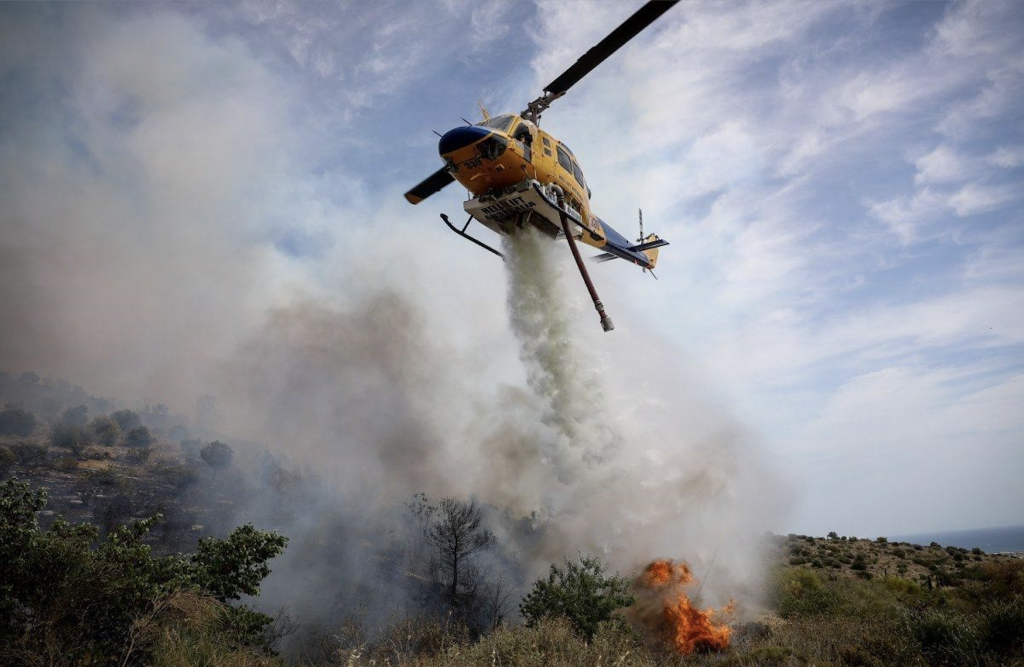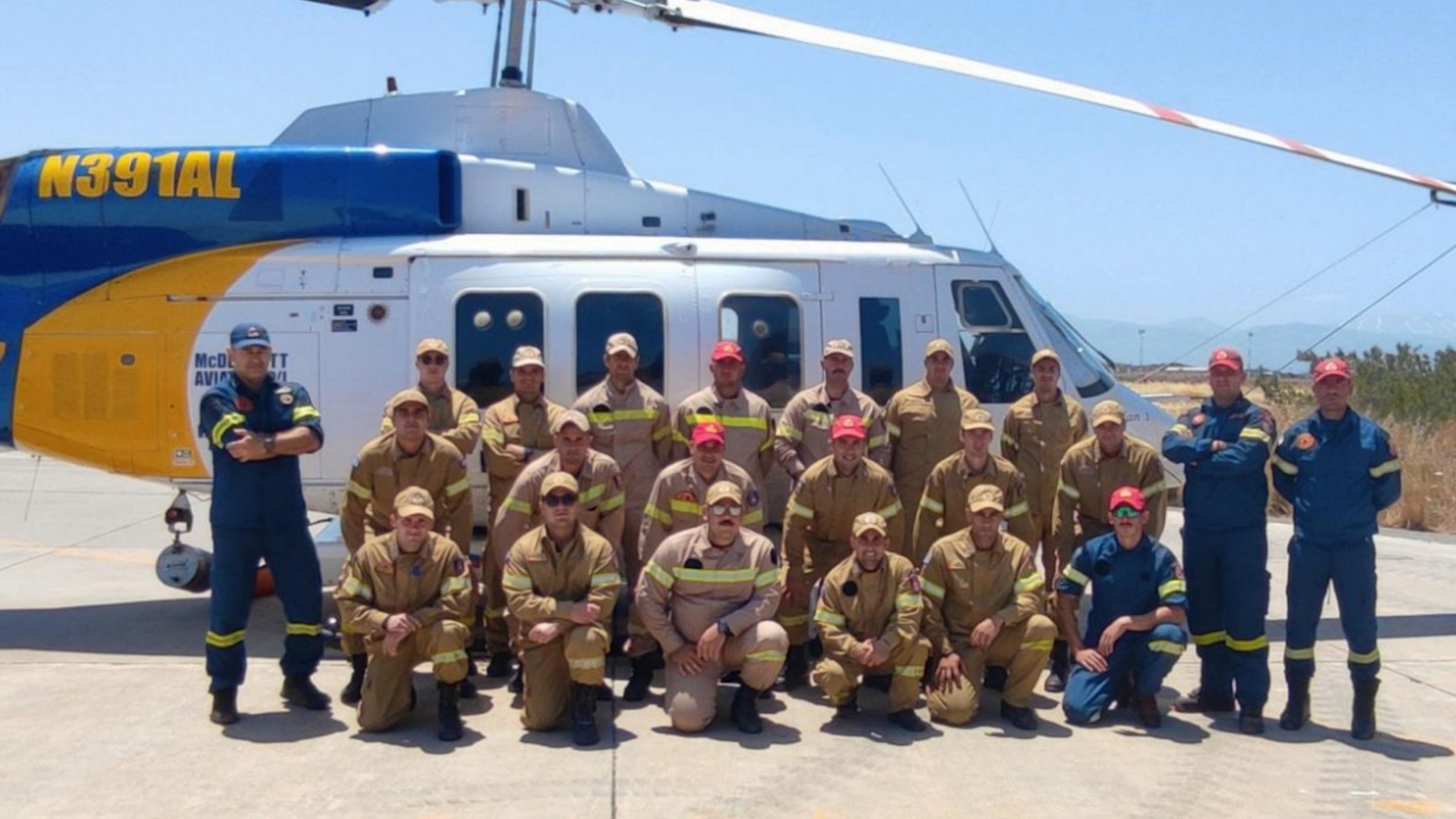People in Greece haven’t forgotten the 2021 devastating wildfires that ravaged over 300,000 acres of forest and bushland across the country or the 2018 fires along the Attica coast that claimed 102 lives in Mati.
This year, since the start of the fire season on May 1, nearly 2,500 wildfires have been recorded so far.
Following sharp criticism of its response to the fires last year, the government has set up a new civil protection ministry and boosted firefighting capacities with more firefighting aircraft available and 250 firefighters from six European countries to provide back up if needed.

But apart from those who battle blazes from the ground, Australian fixed and rotary-wing firefighting aircrafts and crews, who were deployed from Queensland and New South Wales, have joined forces with the Hellenic Fire Service and work around the clock since June fighting fires from the air.
“We have eight aircraft and more than 20 people in the country at any one time over a period of nearly five months. There are many more people who support our operations from both Greece and Australia,” McDermott Aviation’s base manager in Greece, Tim Vercoe, told The Greek Herald.
The Sunshine Coast-based company has been assisting Greece for three years now and according to Vercoe the crews are more prepared and have a better understanding of the conditions.
“This year we are back with additional helicopters based in more locations in Greece. We now have some good friends here and it’s great to renew our working relationship with AK Aviation, fire fighters and other air crews,” he said.
“The season is starting to heat up and the aircraft have been busy already up to the beginning of August. We hope it will be easier but we are prepared if conditions get worse.”
Asked whether Australian crews face operational challenges in Greece due to the country’s highly skilled crews but limited resources, Vercoe said that the biggest challenge is the current international transport and freight environment.

“We fly with Greek coordinators to communicate with fire fighters on the ground and to assist with Greek fire protocols. One of the biggest challenges this year has been in international logistics to get the aircraft here and returned at the end of season and to supply the parts and personnel we need,” he said.
The Australian specialist firefighting helicopters are used to transport fire fighters and equipment as well as water bombing and Vercoe attributes the efficient work done so far to the “excellent cooperation with ground crews” and the support from the local communities.
“We have tremendous support from local communities,” he said. “Both those that have seen our work up close and those that are more familiar through the news services. There are a lot of Greek connections with Australia and we always get a good reception and a lot of appreciation.”

But like the Greek people, the Australian crews also will never forget last year’s devastating fire season that ripped through Evia Island.
“In the space of a few days, we were able to mobilise four additional helicopters from Australia in a massive air freighter and have them straight away fighting the damaging fires around Athens. We believe the quick action with our Greek partners helped prevent more damage to people and property,” Vercoe said.
The aerial firefighting assets and crews are expected to be redeployed back to Australia in time for the southern hemisphere fire season.

